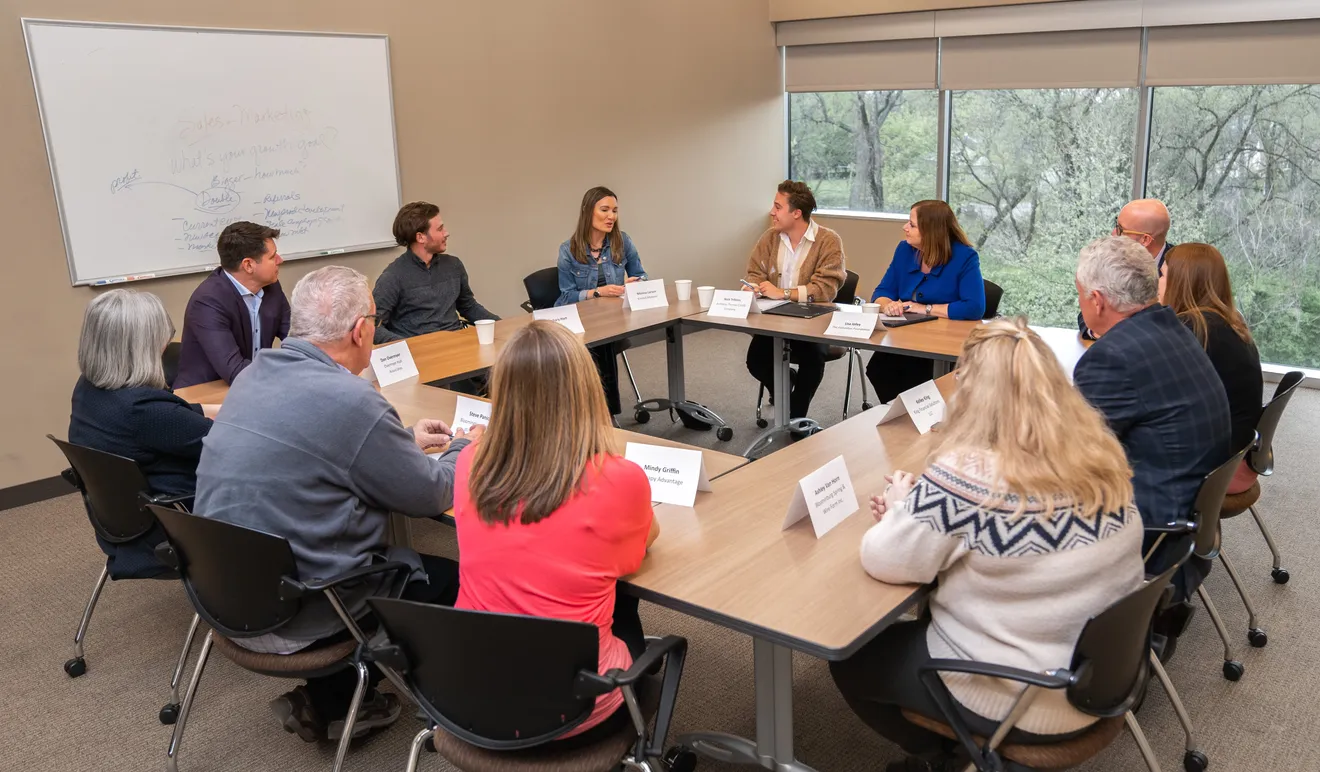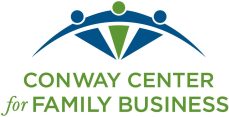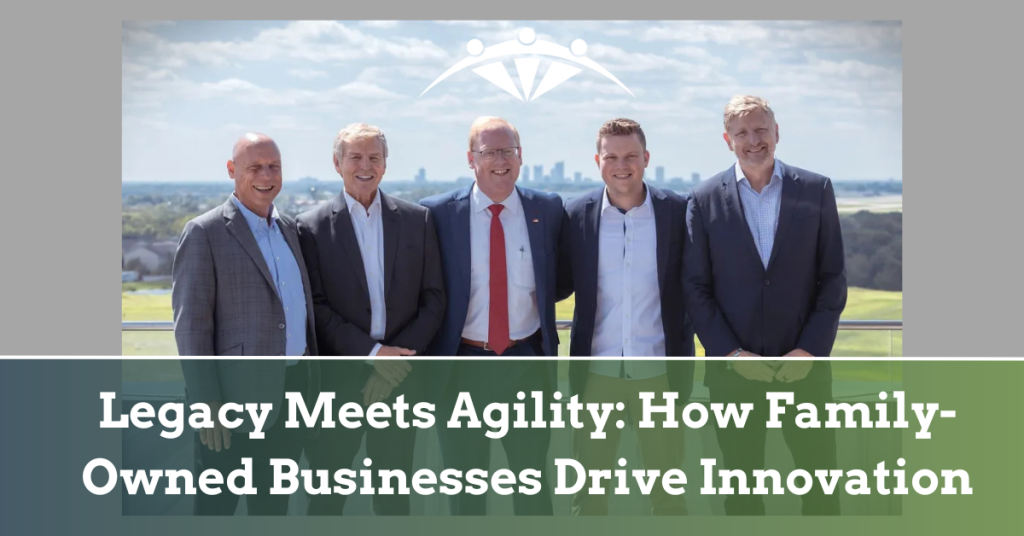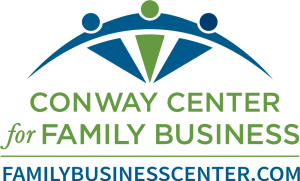Family-owned businesses may be seen as steeped in tradition — committed to their heritage, customers, employees and communities.
Underlying this reputation lies a surprising twist: many family enterprises also are leading innovators in their industries. Their unique mix of long-term thinking, deep-rooted values, and cross-generational leadership creates fertile ground for reinvention. When done well, innovation doesn’t dilute a family’s legacy — it strengthens it.
Nowhere is that more evident than in leading Central Ohio family businesses such as Oakland Nurseries and Grote Company.
The innovation imperative
“If you’re not growing, you’re dying,” said Bob Grote, CEO of Grote Company and a second-generation family business leader.Technology, such as AI, is advancing rapidly and global trade dynamics may fluctuate significantly, accented by shifting tariffs. For family-owned businesses, the pressure to evolve isn’t just about survival — it’s about staying relevant for the next generation.
“Robotics is the biggest change in our industry. We’re moving from repetitive jobs to those that add value and become more personally rewarding.” observed Grote, whose company designs, manufactures and supports best-in-class equipment lines to automate food processing. “Now, vision technology — digitally observing product during production — is enabling even greater automation. We’re building that tech into our outlook.”
Unique strengths of family-owned businesses
Family-owned businesses bring distinct advantages to the innovation process. Unlike publicly traded companies chasing quarterly results, family firms often take a longer view — investing with a generational horizon. This patience enables them to experiment, fail and try again without immediate external pressure.
They also tend to have strong customer relationships, built on years of trust and personalized service. This closeness can make them nimble by detecting market shifts earlier and pivoting faster than larger companies.

For Oakland Nurseries, new locations and business lines have driven growth since its founding in 1940. A key business, Oakland Green Interiors, builds nature-infused environments to help office workers thrive, according to Genevieve Mills, director and third-generation family business member.
“Every generation brings their own definition of innovation,” said Mills. “Our first generation founded the first garden center. Our second generation grew and built the company from one store to multiple stores, then added new services. We are intent on building on that foundation.”
Succession planning — often seen as a risk — can actually fuel innovation. Incoming generations are eager to prove themselves and modernize the company. When families create space for intergenerational collaboration, they tap into a powerful mix of experience and fresh thinking.
“All four members of my generation worked outside the business, learning from other industries such as law, hospitality and finance,” Mills explained. “We all returned with an understanding of how others do things well.”
Strategies for sparking innovation
1. Partner outside the family
Innovation is prompted by shared perspectives, according to Bea Wolper, board chair of the Conway Center for Family Business.“ Our members interact with colleagues who can challenge their business assumptions in a safe environment,” Wolper said. “Our peer groups offer a trusted sounding board to vet new thinking and test ideas quickly.”

“I started with Conway’s Next Generation Leaders Peer Group when I came back to Oakland Nurseries,” Mills said. “It was helpful to learn what it means to be a family business leader and to hone my skills. Now, my own managers attend the meetings. They leave every time with an idea on how to improve in some small way.”
2. Formalize innovation processes
There are myriad ways family businesses prompt innovation – including allocating staff time and funds, creating cross-functional teams, setting up “labs” where new concepts can be explored and giving employees a voice because they’re often closest to the customer.
Grote Company is guided by two key principles, the first of which was institutionalized by founder Jim Grote. “Agápe capitalism means leading with love, doing what’s right, and following the golden rule – treating others how you want to be treated,” explained Bob Grote.
 The second is an enduring commitment to the customer. “Many of our ideas are generated by problem solving for our customers,” Grote continued. “Many projects have unique characteristics, which challenge our teams across engineering, design and production to stay focused on how we can deliver and support solutions long-term.”
The second is an enduring commitment to the customer. “Many of our ideas are generated by problem solving for our customers,” Grote continued. “Many projects have unique characteristics, which challenge our teams across engineering, design and production to stay focused on how we can deliver and support solutions long-term.”
3. Balance tradition with change
It stands to reason that innovation aligning with a company’s mission and legacy is more likely to succeed.
“We’ve always been about creating environments where people want to be,” Mills said. “Our own evolution over the last four decades – from homes to workplaces – is focused on delivering an experience where people can stay connected to the natural world – not in a colorless, formless space.
“Today, we look to many sources from across the country and Europe for inspiration to incorporate nature into work environments in unique and compelling ways,” Mills added. “People crave a connection to nature. ”For Grote Company – their focus also has never wavered.“ Our customer-facing legacy remains at the heart of our business, and we are constantly evolving because of that,” Grote observed. One family member is focused on applications of AI, another on new business lines and other team members on simply how we do things better. We bring them all together in bi-monthly meetings to discuss what we’re actively developing and their long-term potential.”
Future-proofing the family business
Family business leaders recognize the imperative to respect what’s been built but challenging the status quo to help the family’s legacy evolve in a purposeful way and remain a force for generations to come.
Conway Center is here to help family businesses of all sizes, generations and industries succeed and transition to the nest generation.
To learn more, email the Conway Center at info@familybusinesscenter.com or visit www.familybusinesscenter.com.


